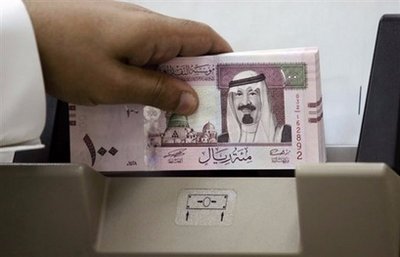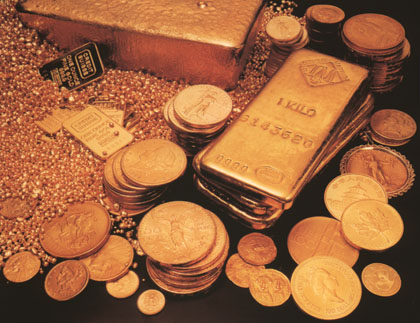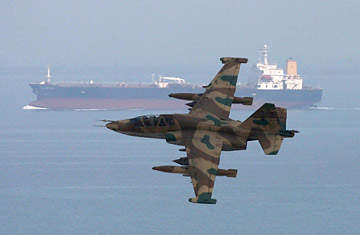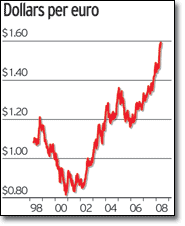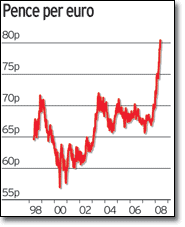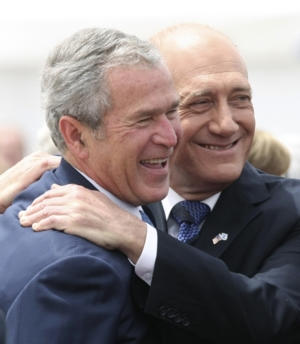
Israel’s Army Radio is reporting that President Bush intends to launch a military strike against Iran before the end of his term.
The Army Radio, a network operated by the Israeli Defense Forces, quoted a government source in Jerusalem. The source disclosed that a senior official close to Bush said in a closed meeting that Bush and Vice President Dick Cheney believed military action against Iran was now called for.
Bush concluded a trip to Israel last week, where he said, “The objective of the United States must be to . . . support our strongest ally and friend in the Middle East.”
The Radio report, which was quoted by the Jerusalem Post, disclosed that the recent turmoil in Lebanon, where the Iranian-backed group Hezbollah had seized virtual control of the country, was encouraging an American attack.
Hezbollah’s aggression in Lebanon is seen as evidence of Iranian President Mahmoud Ahmadinejad’s growing influence, and the U.S. official said that in Bush’s view, “the disease must be treated, not its symptoms,” according to the Post.
The White House on Tuesday denied the Army Radio report, saying in a statement: “As the president has said, no president of the United States should ever take options off the table, but our preference and our actions for dealing with this matter remain through peaceful diplomatic means. Nothing has changed in that regard.”
However, numerous signs point to a U.S. strike on Iran in the near future:
# A leading member of America’s Jewish community told Newsmax in April that a military strike on Iran was likely and that Vice President Cheney’s March trip through the Middle East came in preparation for the U.S. attack.
# The Air Force recently declared the B-2 bomber fleet – a critical weapons system in any U.S. attack on Iran – as airworthy again. The Air Force had halted B-2 flights after a February crash in Guam. As Newsmax reported, the Air Force has refitted its stealth bombers to carry 30,000-pound “bunker buster” bombs, needed to destroy Iran’s hardened nuclear facilities.
# A second U.S. aircraft carrier, the USS Abraham Lincoln, joined the carrier USS Harry S. Truman in the Persian Gulf in May, carrying far more weaponry and ammunition than on previous deployments.
# Israel is gearing up for war. In April, it conducted its largest homeland military exercises ever. The Jewish-American source said Israel is “preparing for heavy casualties,” expecting to be the target of Iranian retribution following the U.S. attack.
# Saudi Arabia is taking steps to prepare for possible radioactive contamination from U.S. destruction of Iran’s nuclear facilities. The Saudi government reportedly approved nuclear fallout preparations a day after Cheney met with the kingdom’s highest-ranking officials.
# The USS Ross, an Aegis-class destroyer, has taken up station off the coast of Lebanon. Military observers speculate it is there to help defend Israel from missile attacks.
Adm. Michael Mullen, the chairman of the Joint Chiefs of Staff, said at a recent Pentagon briefing that the Iranians are systematically importing and training Shiite militia fighters, who slip back across the Iraqi border to kill American troops.
And Israeli intelligence has predicted that Iran will acquire its first nuclear device in 2009, much earlier than previous U.S. estimates.
Tuesday, May 20, 2008 12:40 PM
By: Newsmax Staff
Source: Newsmax.com

